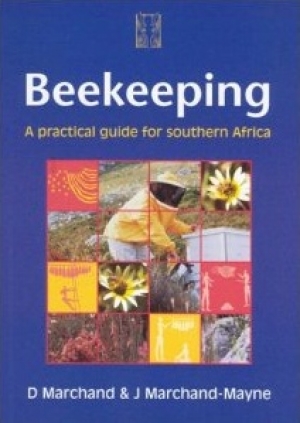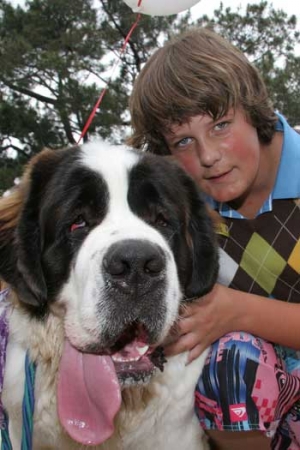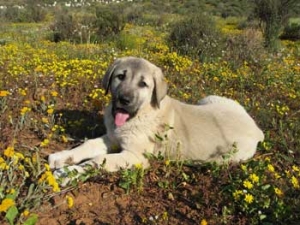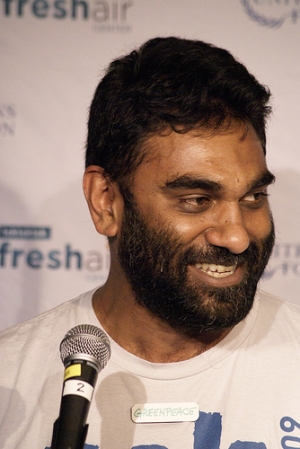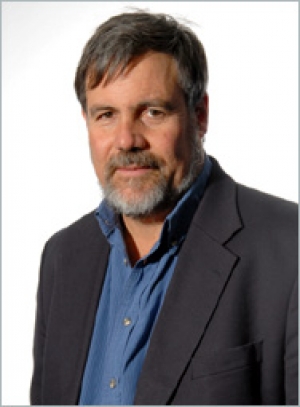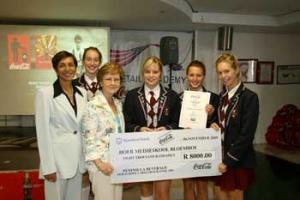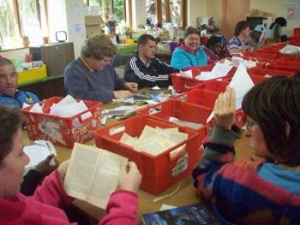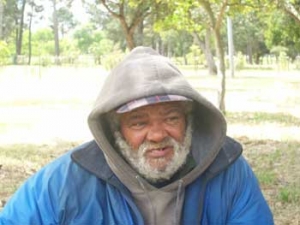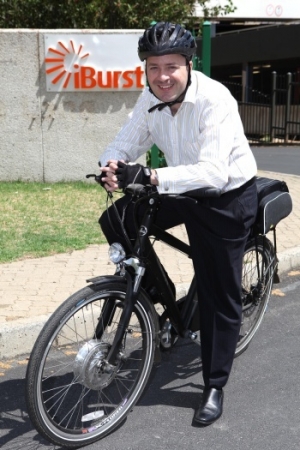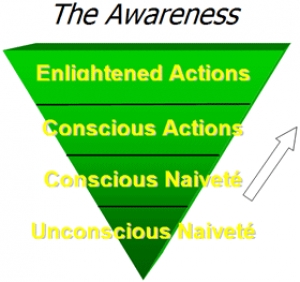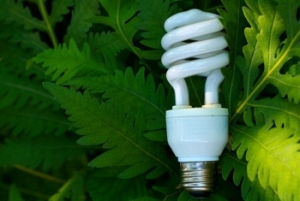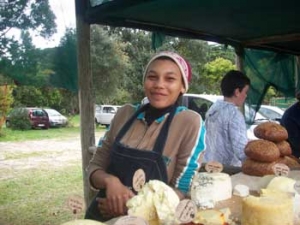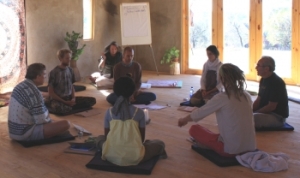We in Southern Africa have had our honeybees since time immemorial. Among the !Kung clans, an old and well-managed hive was cared for as a family treasure and passed down to the next generation, and theft of honey was considered a capital crime.
Australian veterinarian and author, Dr. Ian Billinghurst maintains that 'dogs fare best when fed a natural, unprocessed, raw diet based on bones, meat and vegetables.`
It is essential for livestock farmers to find non-lethal methods to protect their animals from predators. The Anatolian Shepherd Dog fits this bill perfectly.
Proudly African human rights activist, Kumi Naidoo, has taken over as the Greenpeace International Executive Director. Dr Kumi Naidoo is well known for his extensive human rights activism as well as his work in civil society.
Biodiversity is not about a few endangered species ' but rather about the building blocks of life sustaining all earth's ecosystems. Over 600 scientists attending the 2nd major International Biodiversity Conference held in Cape Town recently said in their concluding statement that 'the fabric out of which the earth system is woven is unravelling at an accelerating rate.'
Boland schools worked hard and won most of the top prizes in the yearly Our Schools Cares/Adopt-a-Spot competition, sponsored by Peninsula Beverages. Bloemhof Girls' High from Stellenbosch came first in the senior school section and received R8000 from the sponsors.
A state-of-the-art, eco-friendly library at the Nelson Mandela Metropolitan University's Missionvale Campus near Port Elizabeth will be completed soon, setting a new benchmark. Emphasis has been placed on the library's air-conditioning and lighting systems as they account for most of the energy consumption in the library.
A thousand students in green overalls, cheekily called the green police, raised awareness on campus during their recent Green Week. Known as the Green Campus Initiative, they are the biggest and fastest-growing society at UCT ' started in 2007.This year they received R2000 in funding from the university, which seems incomprehensibly meagre.
February is the worst month for water consumption in the Cape. One resident shares her water consumption calculations and saving devices and plans with us. Read Theresa Wilson's story and share yours with us as well.
I love win-win, which is what Oasis is. When I visited I smelled biscuits baking, saw recycling happening in every possible open space, and met lots of happy people ' who save 24 000m3 of landfill each year.
Singita Grumeti Reserves, located on the Western corridor of the Serengeti in Tanzania, recently opened an Environmental Education Centre (EEC) on the reserve, answering the urgent call by government to boost environmental awareness within communities.
Peter is 60, lying under an oak tree with his head on a small bag containing his worldly possessions. I've greeted him many times when out on a run; today I stop and ask him his story.
Staring at the many impressive glass and steel corporate headquarters that line the Sandton landscape, visitors to South Africa's foremost commercial hub could be forgiven for thinking that environmental concerns are perhaps not top of the agenda.
Our capitalist economy, together with low education levels, create a huge rift in most organisations between good intentions or policies and shopfloor adherence. Many organisations today have environmental/sustainability policies in place, which give voice to the senior management's commitment to environmental responsibility.
Accounting bodies around the world agree that a single set of global reporting standards on climate change is needed.
With the expectation of electricity prices doubling in the near future, it is easy to join the cause of saving energy or utilising renewable sources. I have watched discussions with great interest in the past few days since the 45% per annum (over three years) phased Eskom tariff application was 'leaked' to the press.
As part of Eskom's energy saving initiative known as 'Measure to Manage,' real-time energy consumption meter readings help businesses use energy sustainably and reduce their carbon footprint. CTICC has given Eskom permission to install 36 meters and modems over a period to monitor the centre's energy consumption in real time. This data will be translated into environmental information, made accessible for viewing via an online energy dashboard, and updated every 60 seconds. To view the CTICC's energy consumption, carbon emissions and energy demand visit www.measure2manage.co.za. You can also register for periodic energy saving email alerts.
...any fresher and pigs might fly.
Porter's is a fresh food market, no mistake. The smell of moer koffie and bacon greet you. 'We styled it after old European markets where people come to hand-select fresh produce and catch up with friends,' said Gail Coetzee, the market manager, in a polo-neck jersey with her hair in a pony tail. 'About a quarter of the stalls are organic ' our policy is 'as natural as possible.'' The market is in a woodsy setting that attracts urbanites like flies. It's interesting how we long for Nature and to feel that we are getting out of doors and out of town. But even if it's the new urban shopping trend, and a little bit pretend, it's a positive move. Gail and her restaurateur clan started Porter's 3 years ago when they began having kids and wanted a place in Nature to take them. They leased a field on the Porter Farm in Tokai and put up the infrastructure ' wooden stalls, rustic tables, and a huge sandpit. Today cyclists are having a health breakfast, people are browsing with dogs and children, and everyone is choosing home-made food for a cold weekend.
Green terms like sustainable, organic and eco-friendly appear everywhere. At sea in all this greenspeak, how can we tell real claims from false? You may not be familiar with the term 'greenwashing' but you will have experienced it ' misleading marketing about the environmental benefits of a service or product.
As the environment emerged as an issue in the 70s, so going green became big business and companies were eager to be associated with saving the environment. In some cases the company's green image is patently false; in most cases companies are involved in 'random acts of greenness' such as tweaking policies, practices and products; and in some cases companies are truly green and are implementing systemic changes.
Ours is not a better way, ours is merely another way. The first annual Ecovillage Convergence in South Africa took place on 18-20 September 2009. This coming together of kindred spirits had been growing in the hearts of many who share the desire for authentic, earth-based living. The Convergence was intended as a `gathering of tribes` from fellow ecovillages and intentional communities in and around South Africa. The primary focus was to establish a living network through which communities and ecovillages may work together to raise awareness and facilitate the movement towards sustainable earth-based lifestyles around South Africa. The call was put out to all known established and emerging communities, ecovillages and projects countrywide. This intent was synchronistically reinforced when a fellow community planned the same event on the same date!






